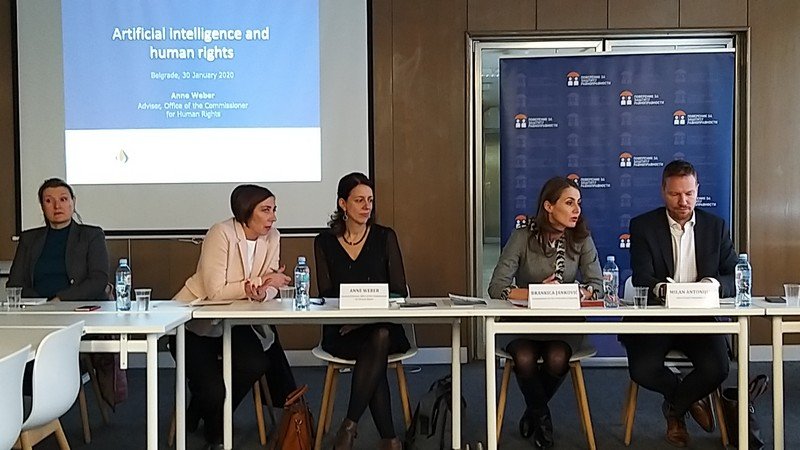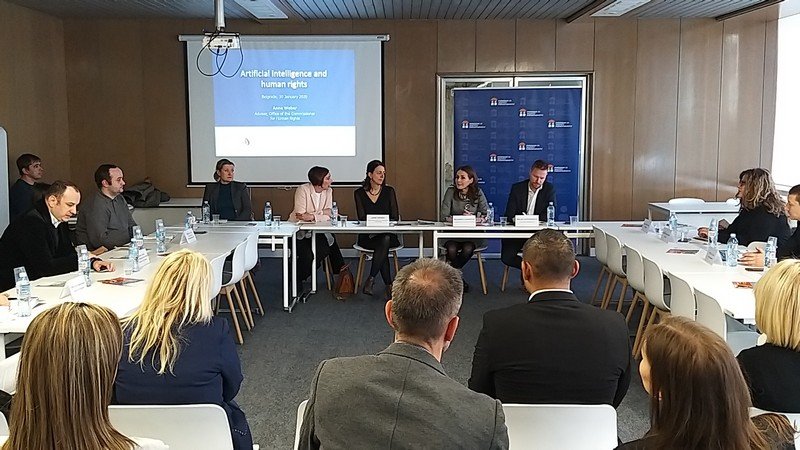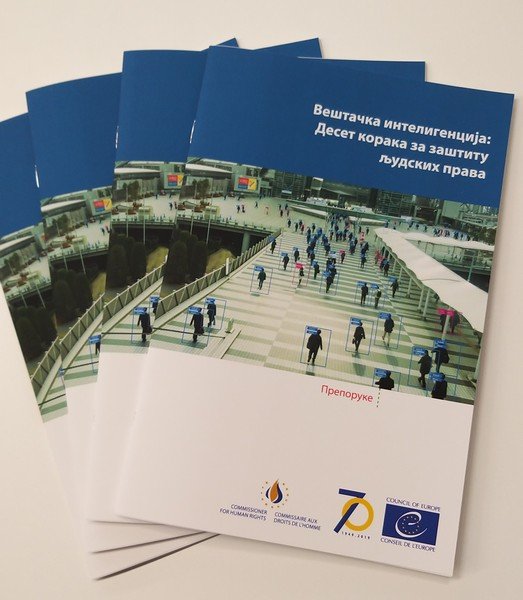The growing use of artificial intelligence in various fields is a very specific challenge when it comes to respecting the principles of equality and non-discrimination, and therefore it is important to consider all its potentials and dangers, said Commissioner for Protection of Equality Brankica Jankovic at the presentation of the recommendation “Unboxing Artificial Intelligence: 10 steps to protect the human rights ” issued by the Commissioner for Human Rights of the Council of Europe.
Commissioner shared the estimation that the application of algorithms in the economy will delete 47% of the existing jobs that will be automated, which will mostly affect the less trained workforce and women. At the same time, there is a high probability of introducing prejudices into the algorithms on which artificial intelligence systems are based, which can lead to discrimination against certain social groups, says Jankovic.
Adviser to the Commissioner for Human Rights of the Council of Europe and author of the recommendation, Anne Weber, emphasized the importance of establishing appropriate mechanisms for the control and protection of human rights. She presented a document containing 10 recommendations, which include assessing the impact on human rights by setting appropriate legal frameworks and procedures, transparency of the AI system and methods of legal protection, prevention of discrimination and misuse of personal data, respect for freedom of expression, assembly, association, the right to work and establish an independent oversight mechanism. The recommendations are addressed primarily to the member states of the European Union, but they apply to anyone who has a significant impact on the development, use or effects of a AI system.
The meeting was also attended by the Director of the Open Society Foundation of Serbia Milan Antonijevic, representatives of the Cabinet of the Prime Minister of the Republic of Serbia, the Ministry of Health, the Ministry of Trade, Tourism and Telecommunications, the Office for IT and e-Government of the Government of the Republic of Serbia, the Center for Digital Transformation, Faculty of Engineering and the National Employment Service.




